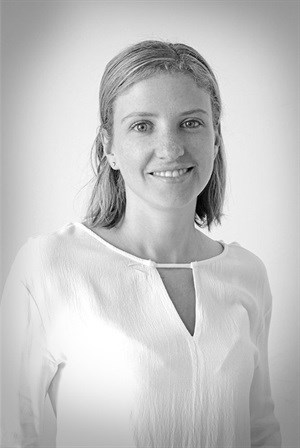
Rosemary Baronetti
So, when I moved across to become a strategist myself, it took me a long time to stop feeling like an imposter. I was sure that at some point, people would realise that my “strategy brain” was the same brain I had as a client, or client service person or researcher for that matter (shock horror!).
But, over the years, I have come to realise that strategist aren’t born, they are made. And here are some unspoken secrets amongst strategists that I think it is time to come clean on.
SECRET 1:
Firstly, no one works harder than client service people in advertising. They are constantly juggling so many balls while still having to ‘people please’ clients, creative staff and dare I say, strategists. It’s a thankless job that requires very high levels of E-Q to navigate the madness and keep everyone happy and still meet all the deadlines on budget.
SECRET 2:
This leads me to my next secret, having an above average E-Q or ability for empathy and compassion is way more important as a strategist than conventional brain and book smarts of IQ. To understand what will motivate someone to spend their money on a brand takes much more than economic analysis. People are emotionally wired and make most decisions instinctively and struggle to articulate their true motivations. It takes time to peel away, layer by layer the small nudges that are pushing or repelling people towards some brands over others. The more people you speak to, and the more time you spend working on a brand or category the more layers you are able to peel away to come to deep insights.
SECRET 3:
Bad advertising and poor strategy also (sadly) work. Even bad ads that are repeated enough times will illicit people to act. For this reason alone, action and being present with messaging in the market place is often more important than fine tuning communication that leads to inaction.
SECRET 4:
Being good at strategy is more about time in the game, than natural talent. The more strategies and brands you work on, the more you start to see the patterns repeating or the nuanced differences that make some brands stand out over others. Also, the less bogged down with the nitty gritty details of advertising such as specs, deadlines and emails, the easier it becomes to start connecting the dots and see the bigger picture.
SECRET 5:
This next one is a biggie: Clients spend way too many agency hours in strategy rather than creative. Naturally strategy is a discipline that is closer to marketing than creative. As strategists we still deal with data, sales results and KPI targets. But these are not the key things that move the dial for brands. I have spent months, and even sometimes up to a year with a client finessing every last detail only to leave creative with no proper thinking time and even less for production to execute the idea to a high standard.
SECRET 6:
My aim for the strategic process is that it should reflect how agencies work in pitch mode- crack the strategic thinking in 2 days max, get the brief into creative as early as possible and only then finesse that strategic argument. Of course, you don’t want to take a brand in the wrong direction with the strategy, but an experienced strategist will quite quickly be able to spot the key brand opportunities and creative territories. What takes time is building your argument and substantiating your intuition.
SECRET 7:
Strategists can spend lots of client hours working on the latest strategy trend- brand purpose work. Personally, I don’t think brand purpose is relevant for every brand. I may be shot down as a heretic for saying this, but hear me out first… Some brands just simply haven’t earned the credibility, or right yet to communicate at a brand purpose level. People first need to know why your brand can make their life better, faster or easier, always through the lense of an emotional brand story, before they can give a damn about your higher purpose. If your brand is not regularly communicating in market or is in a commoditised category or is a small player in a cluttered category - brand purpose will do little to shift your sales and to help you grow so that you can continue fulfilling whatever your higher purpose is in the first place.
SECRET 8:
Research can never tell you how successful an ad will be. I have seen too many creative research reports, where ads have been tested with consumers against very fancy global benchmark tests and come out with a score on how well the ads noting and liking will perform. Only to see the post campaign results reflect a completely different picture. People being researched can only tell you what they see, not what they don’t see. Which is to say, they can only reflect on what may be wrong with an advert, but they don’t have the insight to advise on how to fix it because their answers will always reference what is wrong with what they see, not with the other multitude of possibilities they have not seen.
SECRET 9:
And for my last secret, the best judge of creative work is not whether it is “on strategy”, the best judge is whether it moved you to feel an emotion that made the brand feel relevant to your life and the lives of your consumers. If not, no strategy in the world can fix that.